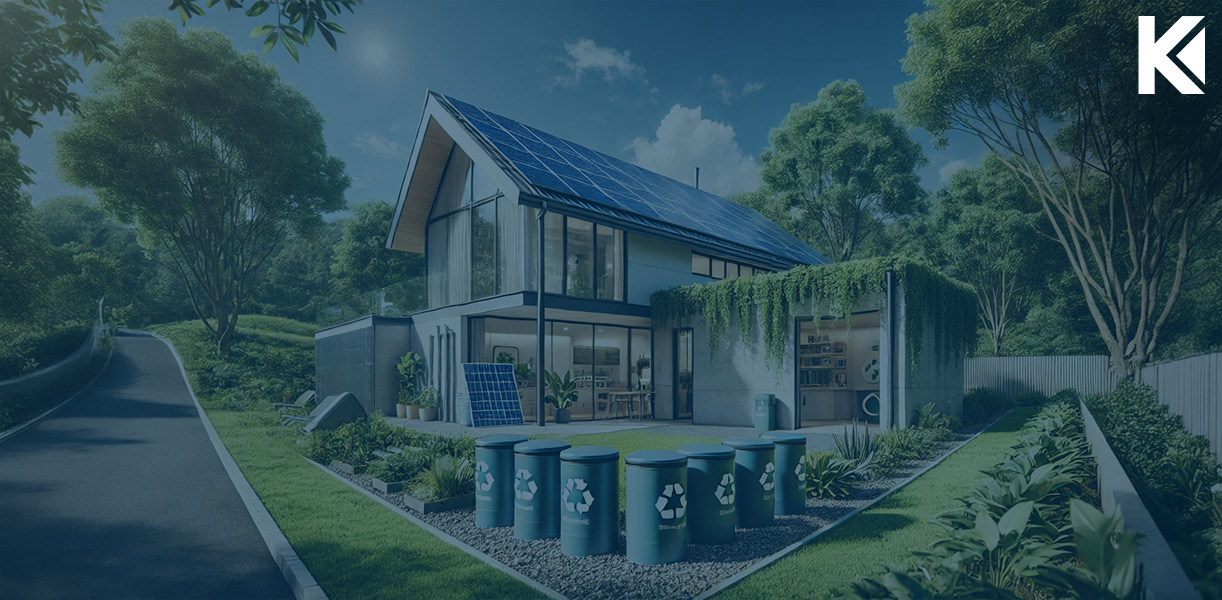As sustainability becomes a priority for homeowners, understanding eco-friendly terminology is essential for making informed decisions about your home and lifestyle. From energy-efficient practices to green building materials, these terms can help you navigate the world of sustainable living. Here’s The Green Glossary, a guide to essential eco-friendly terms every homeowner should know.
Energy Efficiency Terms
1.Energy Star
A certification program run by the U.S. Environmental Protection Agency (EPA) that identifies appliances, electronics, and building materials meeting high energy efficiency standards.
- Why It Matters: Energy Star-certified products reduce energy usage and lower utility bills.
2.LED (Light-Emitting Diode)
A highly efficient lighting technology that uses significantly less energy than traditional incandescent bulbs.
- Why It Matters: LEDs last longer and reduce electricity consumption, making them a cost-effective and sustainable choice.
3.Zero Energy
A building or home that produces as much energy as it consumes, typically through renewable energy sources like solar panels.
- Why It Matters: Net-zero homes drastically reduce carbon footprints and energy costs.
Water Conservation Terms
4.Low-Flow Fixtures
Plumbing fixtures, such as faucets and showerheads, designed to use less water while maintaining performance.
- Why It Matters: Reduces water waste without compromising functionality.
5.Rainwater Harvesting
The process of collecting and storing rainwater for non-potable uses like irrigation or flushing toilets.
- Why It Matters: Reduces reliance on municipal water systems and lowers water bills.
6.Greywater
Wastewater from sinks, showers, and washing machines that can be treated and reused for non-drinking purposes.
- Why It Matters: Promotes sustainable water use and reduces overall waste.
Building and Materials Terms
7.LEED (Leadership in Energy and Environmental Design)
A globally recognized green building certification program that promotes sustainable building practices.
- Why It Matters: LEED-certified buildings are energy-efficient, environmentally friendly, and often have higher resale values.
8.Sustainable Materials
Materials sourced responsibly with minimal environmental impact, such as bamboo, reclaimed wood, and recycled steel.
- Why It Matters: These materials help conserve natural resources and reduce waste.
9.VOCs (Volatile Organic Compounds)
Harmful chemicals emitted by certain paints, adhesives, and building materials. Look for low-VOC or VOC-free options for improved indoor air quality.
- Why It Matters: Reduces exposure to toxins that can affect health and air quality.
Renewable Energy Terms
10. Solar Photovoltaics (PV)
Technology that converts sunlight into electricity using solar panels.
- Why It Matters: Solar energy is a clean, renewable source that can significantly lower energy bills.
11. Geothermal Heating and Cooling
A system that uses the earth’s natural temperatures to regulate indoor climate.
- Why It Matters: Highly efficient and reduces reliance on fossil fuels.
12. Wind Power
Energy generated by wind turbines, typically used in larger-scale applications or specific rural residential setups.
- Why It Matters: Provides a renewable energy source with minimal environmental impact.
Waste Reduction Terms
13. Composting
The process of converting organic waste into nutrient-rich soil for gardening.
- Why It Matters: Reduces landfill waste and enriches soil health.
14. Upcycling
Repurposing old or discarded items into something new and functional.
- Why It Matters: Reduces waste while promoting creativity and sustainability.
15. Circular Economy
A system that focuses on reusing, repairing, and recycling materials to minimize waste and environmental impact.
- Why It Matters: Promotes sustainable consumption and reduces reliance on finite resources.
Climate and Sustainability Terms
16. Carbon Footprint
The total amount of greenhouse gases produced by an individual, household, or activity.
- Why It Matters: Lowering your carbon footprint helps combat climate change.
17. Renewable Resources
Natural resources that replenish themselves over time, such as sunlight, wind, and water.
- Why It Matters: Using renewable resources reduces reliance on fossil fuels and environmental degradation.
18. Greenwashing
A marketing tactic where companies falsely claim to be environmentally friendly.
- Why It Matters: Educated consumers can spot and avoid misleading claims.
Conclusion
Sustainability is more than a buzzword—it’s a lifestyle shift that begins with understanding key terms and concepts. With The Green Glossary, you’ll be better equipped to make informed decisions about your home, energy use, and environmental impact. Whether you’re upgrading to energy-efficient appliances or exploring renewable energy, every step toward sustainability makes a difference.






